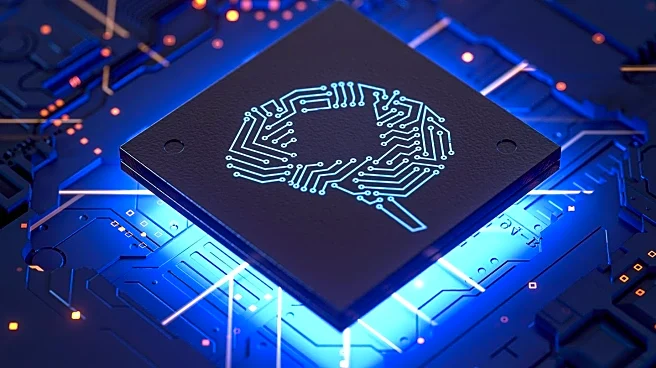What's Happening?
Scientists have developed AI-driven methods to create personalized immune therapies for cancer treatment, significantly reducing the time required to target and eliminate cancer cells. This approach involves designing synthetic proteins that train the immune system to recognize and attack cancer cells, a process that traditionally takes years. The AI platform targets cancer proteins like NY-ESO-1, enhancing immune response and offering new avenues for precision medicine.
Why It's Important?
The use of AI in cancer treatment represents a transformative shift in oncology, potentially improving treatment efficacy and accessibility. By accelerating the development of personalized therapies, this approach could lead to better patient outcomes and reduce healthcare costs. It highlights the potential of AI to revolutionize medical research and treatment, paving the way for advancements in other areas of medicine.
What's Next?
Clinical trials for AI-driven cancer therapies are expected to begin within five years, potentially leading to widespread adoption in oncology. As research progresses, AI platforms may expand to target other diseases, enhancing precision medicine. Collaboration between tech companies and healthcare providers could drive further innovation, improving patient care and treatment options.











